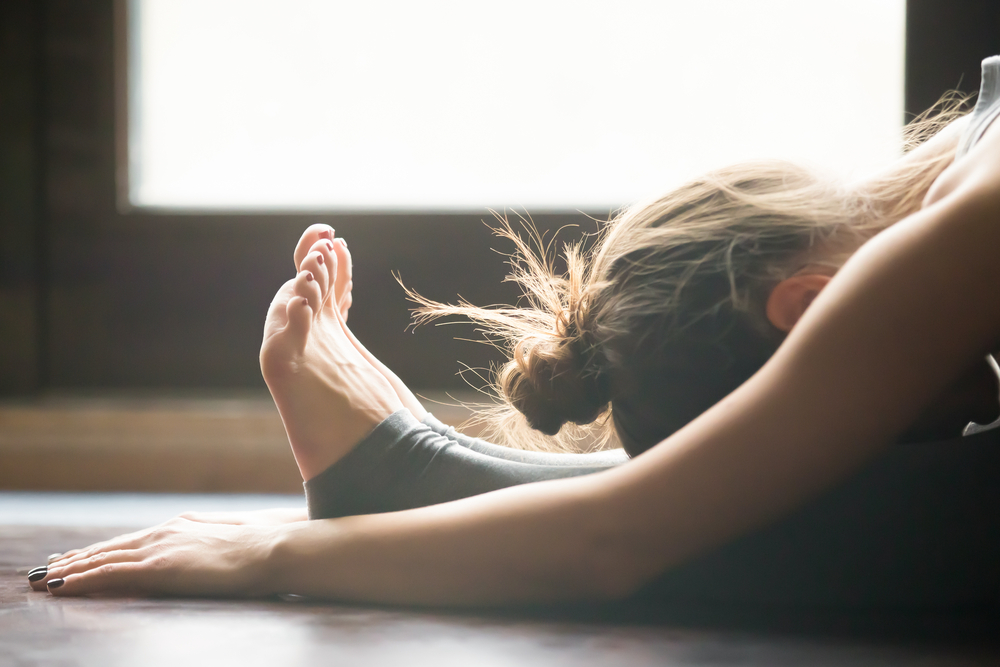Welcome to 2020 — with all its accompanying resolutions to do better, to do different, to cross off that bucket list item. For some of us, starting off the New Year and a new decade with a renewed sense of purpose, inspiration and motivation can be exciting. And it can also seem a bit daunting. Those goals you set need plans to execute, and each plan has to-do items. By the time February rolls around, we can feel somewhat defeated as the excitement wears off and the daily grind sets in.
In 2019, the World Health Organization declared that burnout was a condition of the workplace as stress gets recognized as one of the key drivers of illness. Common sources of stress are the workplace, family, finances, major life changes such as moving or divorce, and the never-ending stream of social media and technology that keeps us continuously tethered to our various devices. Stress is good in small doses when we need it to stay focused on a task, to deliver that ovation-worthy speech or complete that 5K. However, chronic stress is just no good for us as our bodies and brains don’t like the flooding of stress hormones, and it can result in insomnia, anxiety, depression, diabetes, hypertension and cardiovascular disease. Chronic stress can also cause stomach ailments such as indigestion and acid reflux, migraines, and inhibit our immune systems so that we become vulnerable to colds or the flu. You may also exhibit behavioral changes such as eating too much or too little, smoking or drinking more than you may otherwise be inclined to do.
So here are five simple ways to reduce the negative impact of stress as you go about living your best life in 2020.
Breathe
Our breath is a source of life and though we do it reflexively without giving it much thought, paying attention to our breath can have a major impact on the way we prepare for dealing with stress or dealing with stress in the moment. To use your breath to center you, calm you down, and prepare you for what’s coming or what’s here, take a deep breath through your nose while counting to three. Then blow it out through your mouth on a count of three. Do it as often as you need to. If that is the only thing you do differently in 2020, you will definitely feel the difference in the way you feel on an ongoing basis as well as when you are faced with stressful situations. The flood of oxygen will calm your body and keep your brain sharp and clear.
Close your eyes
This may not always be convenient (for example while driving) but if you can, closing your eyes literally closes out the world for a moment and helps you regain your sense of control if feeling overwhelmed. If you do this for one minute and combine it with deep breaths as above, you will definitely feel calmer and more grounded.
Visualize calm
Whether your calm place is a beach or your garden or your favorite hiking trail, closing your eyes and seeing that place in your mind’s eye, will not only take you away from the stress of the moment, but imbibe your body and mind with a sense of peace and calm.
Take a break
Visualizing may mentally take you away, but physically removing yourself from the source of stress can provide rest and restoration and energize you for the task ahead or separate you from the task behind. Your body was not meant to be on the go ALL THE TIME and even though it has become something of a bragging right to say how little sleep or rest one requires, the science says that taking breaks makes you more productive, more creative, more efficient, and will boost your mood to make you a much nicer person to be around. So if you can, take a break every hour for at least 5 minutes. Use that time to take a walk to the bathroom or the water cooler or go outside for some sun and fresh air. Don’t eat at your desk. Even if all you have time for is 15 minutes, remove yourself from the stress of your computer screen and phone and sit quietly for a few minutes while you eat mindfully — tasting and enjoying every bite. You will also find that you have much better digestion than you would if you were taking bites in -between answering emails.
Move
Yes. Move. It has been said that sitting is the new smoking because our sedentary lifestyles are leading us down the path of chronic health problems such as obesity, joint and muscle pain (oh those aching shoulders and backs), gastrointestinal problems and the like. Combine taking a break with some movement. You can get up from your desk and do some stretching to get your blood flowing and reduce muscle tension, or go for a walk outside at lunchtime to get some pleasure-inducing endorphins, increase your cardiovascular fitness and increase muscle strength.
There are many other ways to reduce stress in your daily life but any one — or combination of — these five strategies can serve as the foundation for reducing the negative impacts of stress on your body and mind and provide a healthier and happier start to the new year and a new decade.
Follow us here and subscribe here for all the latest news on how you can keep Thriving.
Stay up to date or catch-up on all our podcasts with Arianna Huffington here.


